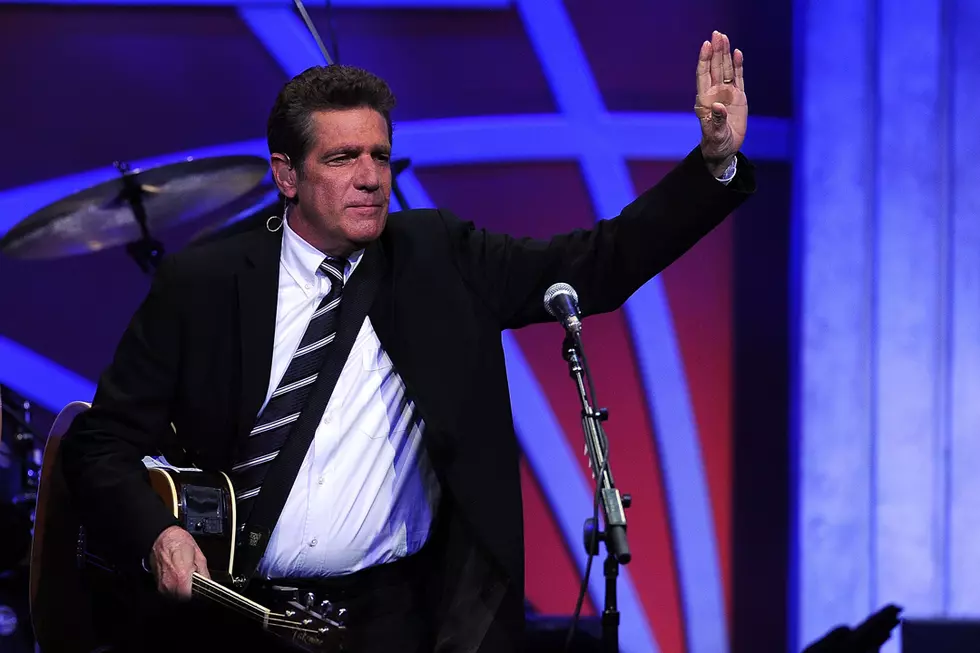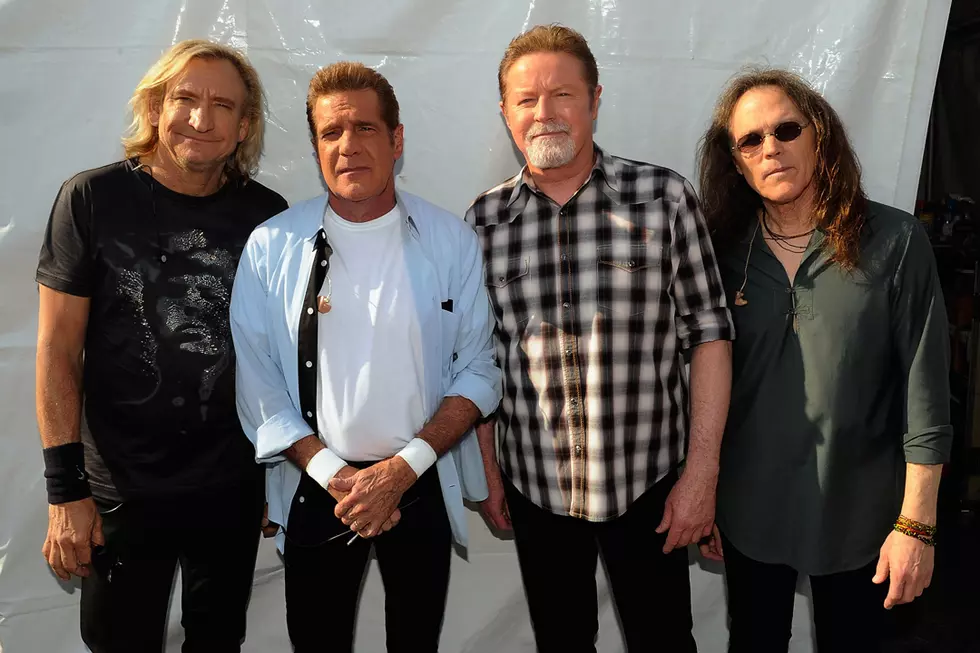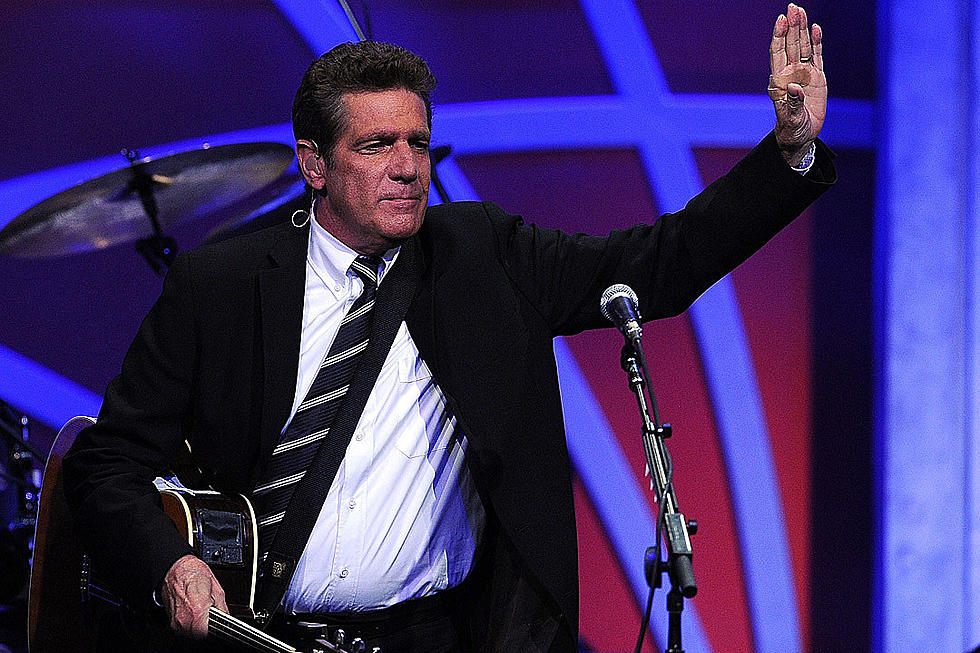
Remember When the Eagles Scored Their Final No. 1 Hit?
The Eagles dominated the charts in the 1970s, and they placed one final No. 1 hit in the waning days of the decade. The iconic group enlisted their old friends Bob Seger and J.D Souther for "Heartache Tonight," which topped the charts and won the group a Grammy during an otherwise difficult period in the Eagles' history.
Glenn Frey and Souther's friendship and musical partnership pre-dated the Eagles, when they worked together in a duo called Longbranch Pennywhistle. Souther stopped by Frey's Los Angeles home when he was in town one night, and they ended up writing the verse to "Heartache Tonight" while listening to Sam Cooke.
Excited, Frey called his old friend and mentor, Bob Seger (that's an overamped, 19-year-old Glenn Frey over-singing in the backing vocals of the Seger classic "Ramblin' Gamblin' Man," blaring, "Ramblin' MAAAAAN!"), and upon hearing the verse, Seger supplied the chorus over the phone.
Souther, Frey and Eagles singer and drummer Don Henley subsequently finished the song, which provided one of the bright spots during the marathon sessions for the group's 1979 album The Long Run. Struggling to follow up on the overwhelming success of Hotel California and mired in drugs and interpersonal divisions, the band nicknamed the album The Long One as it dragged on over the course of two years.
Released as the album's lead single in September of 1979, "Heartache Tonight" rocketed to the No. 1 spot on Billboard's Hot 100 for the week of Nov. 10, 1979. The song slanted more toward the rock elements of the Eagles than most of their hits, featuring a scorching lead vocal from Frey, handclaps, incendiary slide guitar from Joe Walsh and layered chorus harmonies that included an uncredited appearance from Seger.
"Heartache Tonight" would go on to win the Eagles a Grammy for Best Rock Performance by a Duo or Group With Vocal, and "The Long Run" and "I Can't Tell You Why" also scored hits from the album, which went on to sell 8 million copies despite being wildly uneven. But the subsequent tour proved an even more difficult experience, and the Eagles disbanded after a particularly contentious gig on July 31, 1980, at a fundraiser for Senator Alan Cranston's campaign. Frey and lead guitarist Don Felder nearly came to blows backstage after exchanging angry words on stage in front of the audience, with Frey now-famously threatening, "Only three more songs until I kick your ass, pal."
The group struggled through one more contractually-obligated album, 1980's Eagles Live, which featured heavily-overdubbed live takes on their greatest hits drawn from gigs between 1976 and 1980. The band members worked separately on the necessary overdubs and then went their separate ways, launching solo careers with varying degrees of success and failure until they reunited unexpectedly for the Hell Freezes Over Tour in 1994. That tour followed a brief reunion to appear in the video for Travis Tritt's version of "Take It Easy" in 1994. They have toured and recorded off and on ever since in various lineups.
See Inside Glenn Frey's Sprawling California Mansion:
More From Taste of Country
![See Inside the Spectacular Homes of the Eagles [Pictures]](http://townsquare.media/site/204/files/2024/02/attachment-eagles-houses-pictures.jpg?w=980&q=75)








